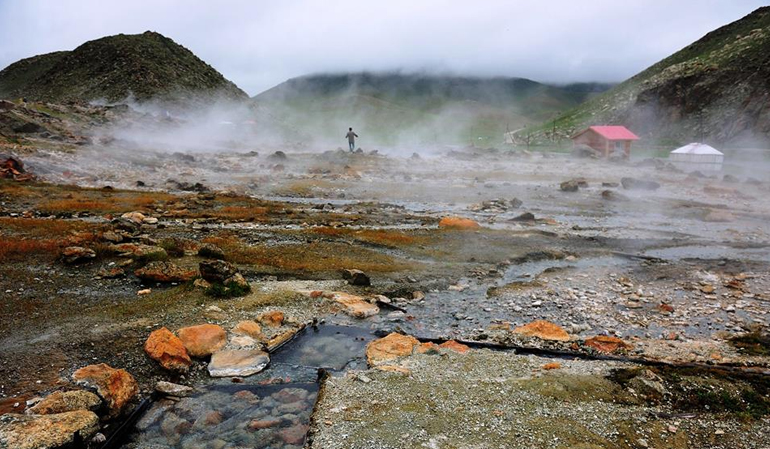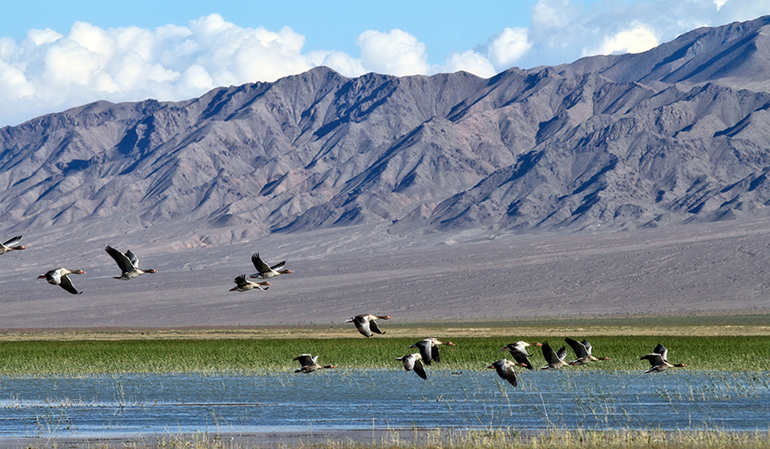Southern Mongolia
Southern Mongolia
Southern Mongolia means, Legendary Mongolian Gobi Desert. When people think of the Desert, they often imagine vast, barren expanses of red and yellow sand. However, the Gobi is a natural masterpiece, rich in rare animals and plants, and encompassing a wide variety of natural landscapes. The magnificent Gobi features stunning mountains, rocks, canyons, water, plants, trees, sand dunes, and vast steppes, combining all aspects of nature's beauty. It is a wondrous spectacle of colors that change with the sun. The Gobi landscape tells ancient story that comes from the time of dinosaur era and more beyond. Scientists and travelers discover rich findings of dinosaur skeletons, bones, and fossilized dinosaur eggs all the time in an ancient sea bed Mongolian Gobi.
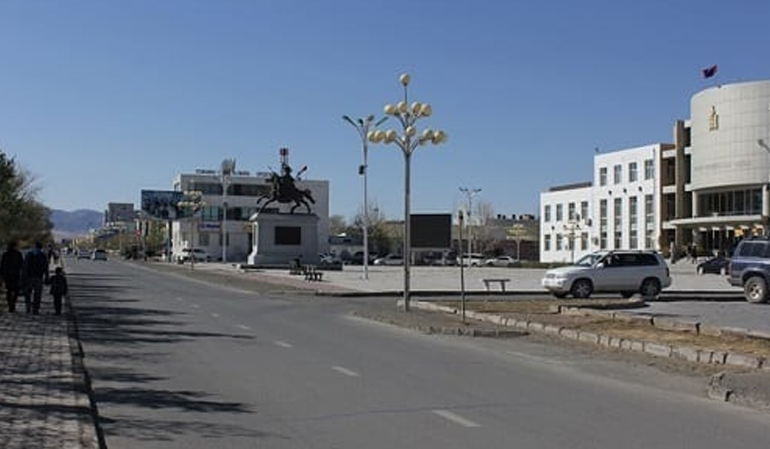
Dalanzadgad city
Dalanzadgad, the capital of Ömnögovi Province, is recognized as one of the most important hubs within Mongolia. Situated in the south of the country, it garners significant attention in national strategic planning. To the south, it borders with China, where inhabited by inner Mongolians. Dalanzadgad is located 585 km away from Ulaanbaatar, the capital city of Mongolia.
Read More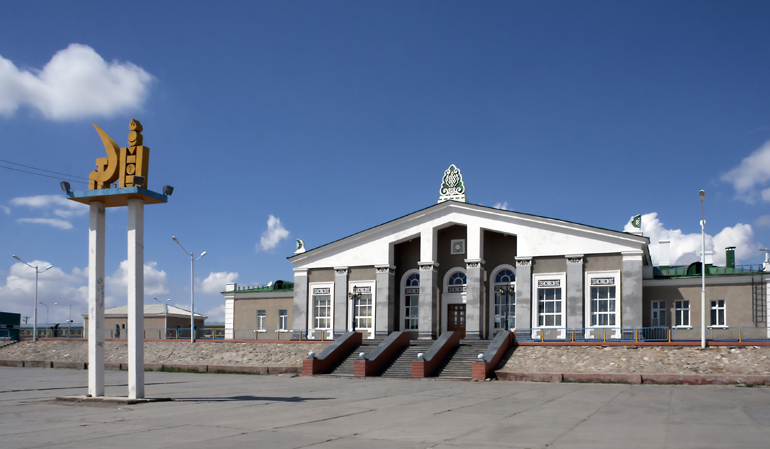
Sainshand city
Sainshand is the capital of Dornogovi Province in southeastern Mongolia. The Energy Center, also known as Shambhala, is a popular spiritual site located near Sainshand.
Read More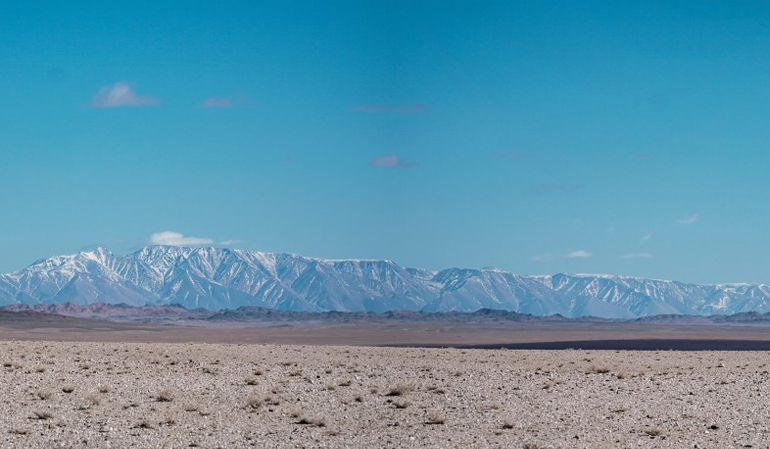
Ikh Bogd Mountain
One of the highest peaks of the Gobi-Altai mountain range, the eternally snow-capped Ikh Bogd Mountain, rises 3,957 meters above sea level. This mountain range stretches 70 kilometers from the northwest to the southeast and is located in the southwestern region of Mongolia, specifically in Bayankhongor Province.
Read More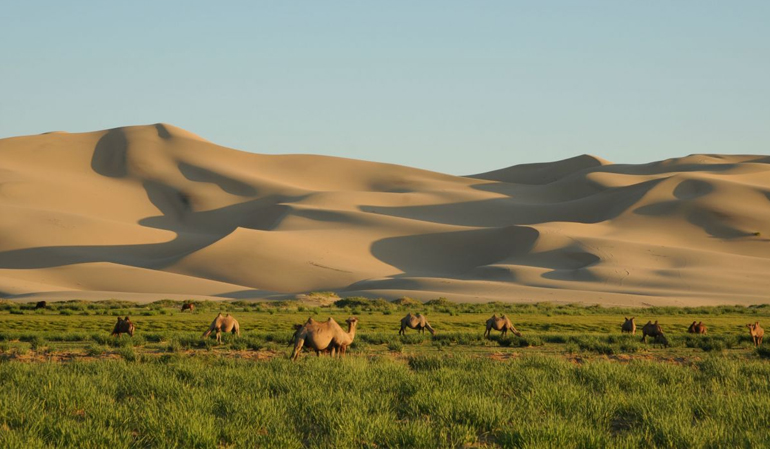
Khongor Sand Dunes
Khongor Sand Dunes, extending 185 km from west to east along the Sevrei, Nomgon, and Zooolon mountains in Ömnögovi province, cover an area of 925 square kilometers.
Read More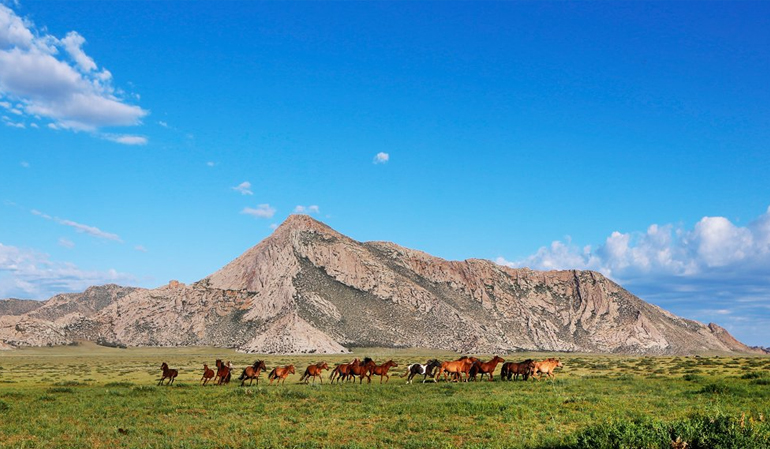
Zorgol Khairkhan
Zorgol Khairkhan is located in the Töv Province of Mongolia, approximately 150 kilometers south of Ulaanbaatar. This area is part of the larger Gobi region, characterized by its rugged terrain and semi-arid climate.
Read More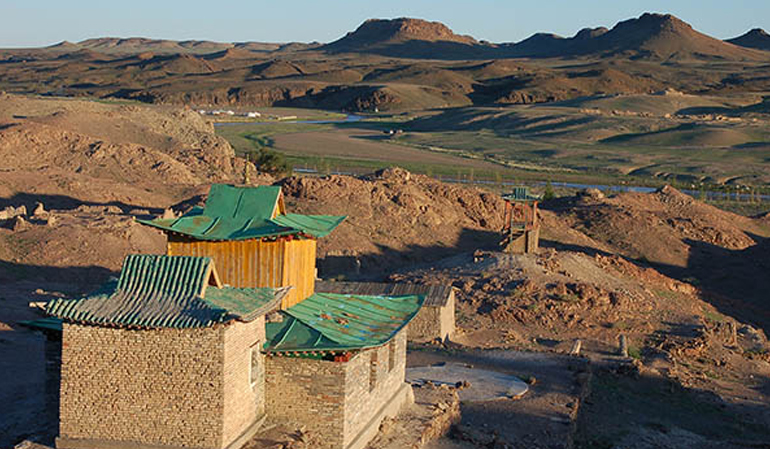
Ongi Monastery
Ongi Monastery, a place steeped in history and surrounded by natural beauty, nestled by the serene Ongi River. Ongi Monastery, once a flourishing center of Buddhism in Mongolia, was founded in the 17th century and grew to become one of the largest monasteries in the country.
Read More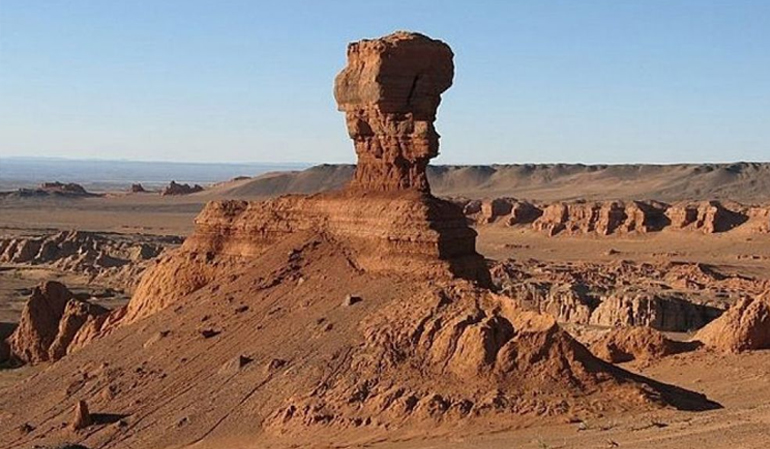
Khermen Tsav
There is a beautiful natural place called Khermen Tsav (cracked wall), located 450 kilometers from Dalanzadgad and 250 kilometers from the sand dunes of Khongoryn Gol.
Read More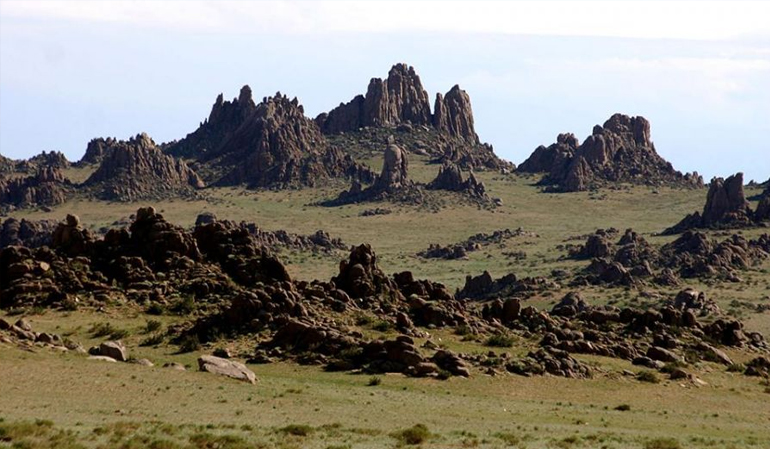
Ikh Gazriin Chuluu
Ikh Gazriin Chuluu, translated as 'Great Rock of the Secret', is a sacred granite rock formation located in the heart of Mongolia. This ancient site holds great significance in Mongolian history, folklore, and spirituality.
Read More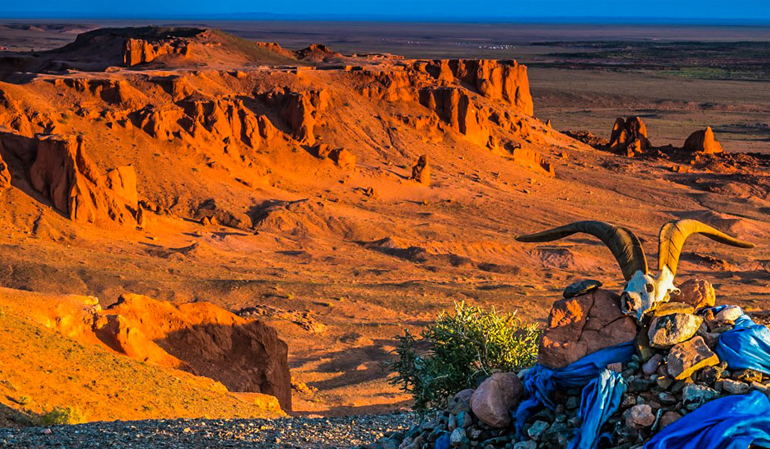
Bayanzag flaming cliffs
Bayanzag is a clay-rich area located in a vast valley along the Arts Bogd Mountains in the Ömnögovi Province. It stretches from south to north, with a width of 5 km and a length of approximately 8 km.
Read More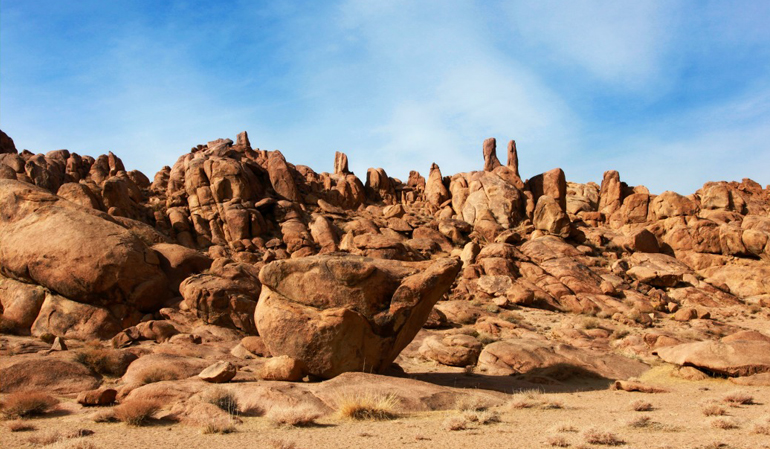
Baga Gazriin Chuluu
It is a granite rock formation with cliffs and stone structures that are not commonly found in the Gobi region. Here, there are many rocks and cliffs with unusual shapes. If you observe closely, you can name all kinds of animals based on the rock formations.
Read More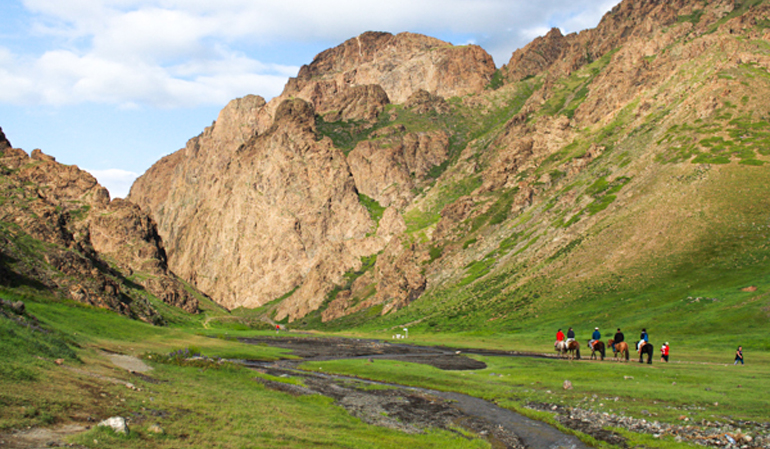
Yol vallery - Gobi Gurvan Saikhan national park
Discover beautiful Yol valley (translates to Lammergeier Gorge) is located in Govi Gurvan Saikhan National Park. Very wide at the entrance, it narrows gradually into a remarkable gorge.
Read More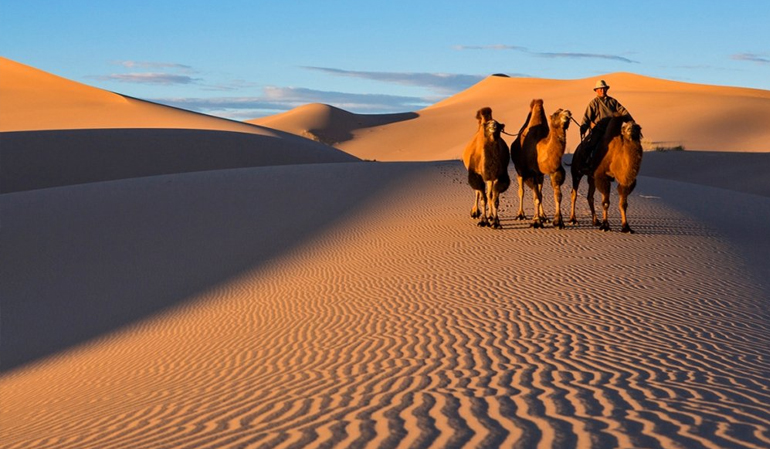
Mongolian Gobi
Every year, thousands of tourists come to Mongolia to witness the wonders of the Gobi region, such as Yolyn Am, surrounded by evergreen juniper and bordered by rippling streams; the flamingly beautiful Bayanzag; and the Khongoryn Els, with its wave-like sand dunes, which would resemble ocean waves if the Gobi were a sea.
Read More

